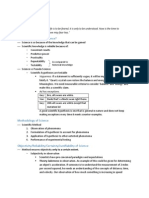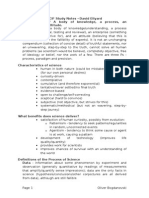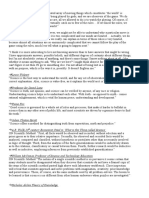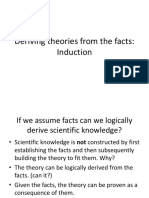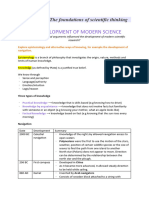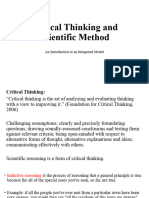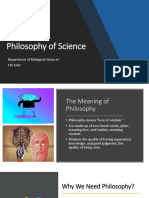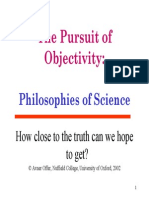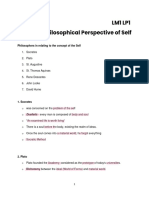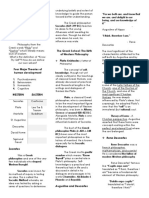0% found this document useful (0 votes)
9 views6 pagesResearch Methods 1
The document outlines the foundations of scientific knowledge, distinguishing between empirical and formal sciences, and the sources of acceptable versus unacceptable knowledge. It traces the history of science from ancient philosophers like Plato and Aristotle through the scientific revolution, highlighting key figures and their contributions. Additionally, it discusses the nature of hypotheses and theories, emphasizing the importance of observation, rationalism, and the principles of scientific argumentation.
Uploaded by
kickboesveldCopyright
© © All Rights Reserved
We take content rights seriously. If you suspect this is your content, claim it here.
Available Formats
Download as DOCX, PDF, TXT or read online on Scribd
0% found this document useful (0 votes)
9 views6 pagesResearch Methods 1
The document outlines the foundations of scientific knowledge, distinguishing between empirical and formal sciences, and the sources of acceptable versus unacceptable knowledge. It traces the history of science from ancient philosophers like Plato and Aristotle through the scientific revolution, highlighting key figures and their contributions. Additionally, it discusses the nature of hypotheses and theories, emphasizing the importance of observation, rationalism, and the principles of scientific argumentation.
Uploaded by
kickboesveldCopyright
© © All Rights Reserved
We take content rights seriously. If you suspect this is your content, claim it here.
Available Formats
Download as DOCX, PDF, TXT or read online on Scribd
/ 6











